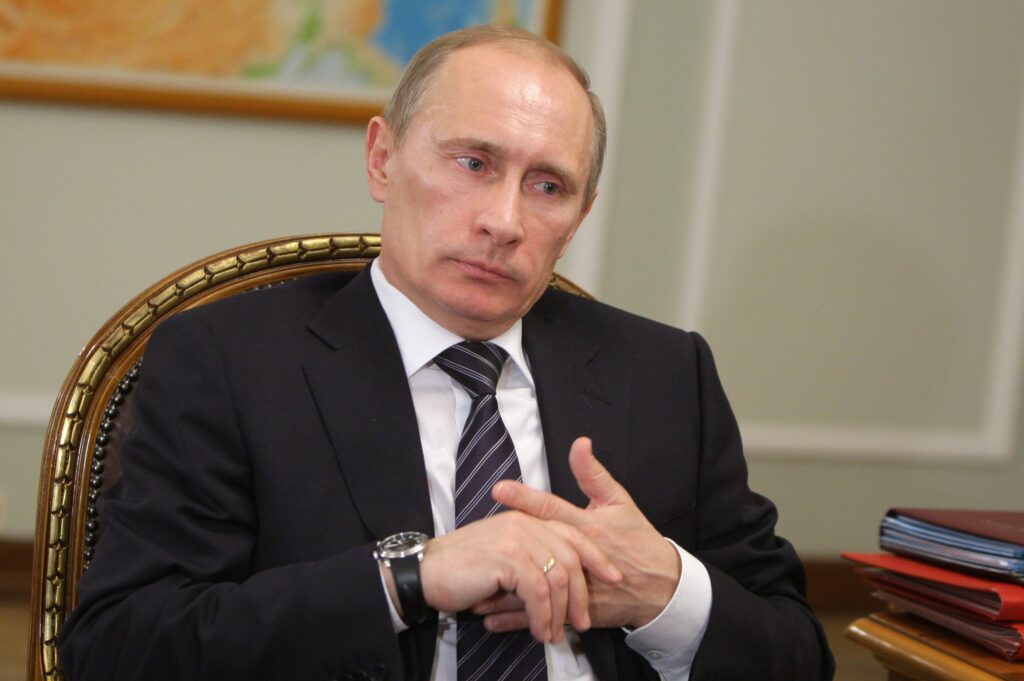Putin didn’t miscalculate? Yeah right!

The trouble with political journalism these days is that contrarian takes are often rewarded for their absurdity. The immediate pushback on social media typically causes the furor to go viral, thus rewarding the author of the absurdist article with a metric ton of very profitable page views. This is so consistently true, most major news outlets have one or more people on staff whose job seems to consist primarily of writing absurd articles that are specifically crafted to go viral and get hate-clicked, thus financially subsidizing the more reputable but less profitable journalism going on at that same major publication.
This brings us to a particularly absurd article published today by a certain New York Times writer whose job does indeed seem to be to write absurd articles that go viral for their absurdity. It’s not clear if he’s in on the joke or if his takes really are legitimately that awful. But either way, he attempted to suggest today that Vladimir Putin “didn’t miscalculate” with his failed invasion of Ukraine, and that Putin instead has us right where he wants us.
It’s obvious on its face that Putin, who just got his economy and his military shattered in such a manner that neither will recover within his natural lifetime, and is now so vulnerable that he’s looking over his shoulder for possible coup attempts, did indeed miscalculate. In fact it was a stunning miscalculation for a leader who for decades prior had been rather savvy with his villainy. In fact this New York Times article is so over the top absurd, it doesn’t read much differently than the weak attempt at face-saving that Putin’s own propaganda outlets have been spinning this week.
Nonetheless, this New York Times article – which rest assured isn’t worth reading – has gone viral today in two ways. First, due to the sheer number of social media users pushing back against the absurdity of the article, the phrase “Putin didn’t miscalculate” has been trending for several hours. Second, even as the article has been getting destroyed by everyone among the public who’s read it, numerous political journalists at other major news outlets have tweeted out links to the article without comment – in what comes across as stunningly oblivious.
You’d have to ask why political journalists from so many of the New York Times’ competitors decided to link to this particularly absurd New York Times article today. In general, such broad journalism industry support for such a patently absurd article is either a sign that the other authors are trying to get in on the viral nature of it themselves, or that they’re hoping to curry favor with the New York Times so they can call in favors later. After all, they’re helping the Times promote an article that’s bound to bring in massive ad revenue for its sheer idiocy, and the Times surely appreciates it.
But really, this kind of thing is everything that’s wrong with the current state of political journalism in a nutshell. The New York Times didn’t publish that article today in order to provide a legitimately contrarian take that made valid points; it published the article because the sheer idiotic worthless absurdity of the article guaranteed that it was going to be very profitable in terms of bringing in ad revenue. And the rest of the industry didn’t rally behind that article because it thought there was any value in reading it, but because the industry thought it might stand to gain by doing so.
Social media users have called for the New York Times to be shunned for having published such an obviously idiotic article in such brazenly clickbait fashion. But the reality is that most major news outlets pursue this strategy on a regular basis. Shaming one publication or writer at a time won’t fix what’s broken about the industry overall; it’s the political journalism industry as a whole that needs fundamental change.
